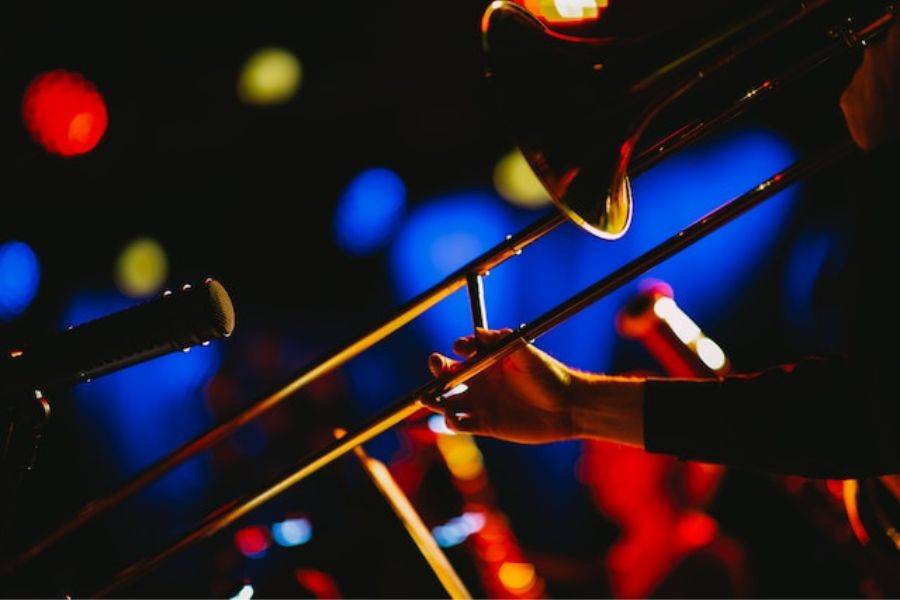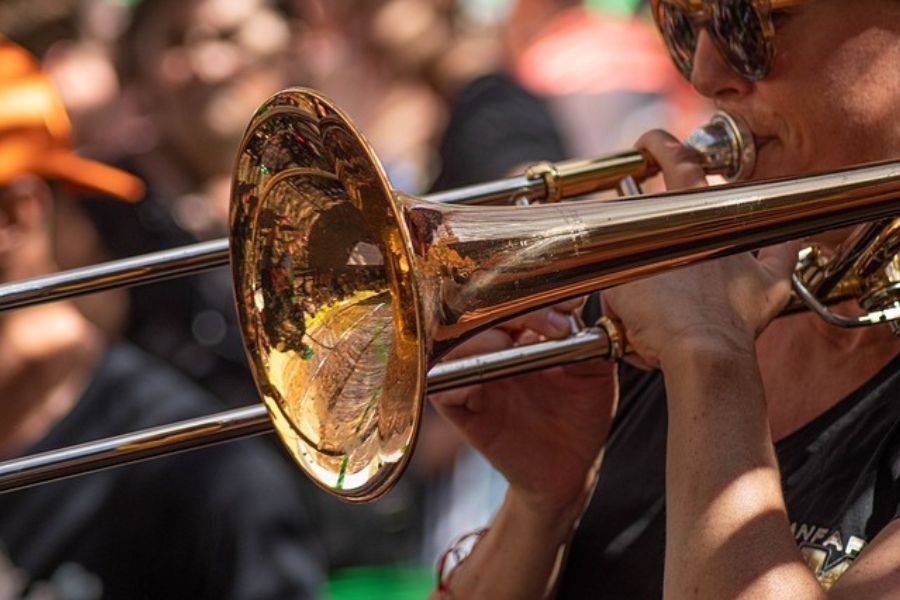Music is a universal language that resonates with individuals in diverse ways.

Every person has their own set of musical preferences, shaped by personal experiences, cultural background, and individual tastes.
Some people are drawn to the ethereal melodies of a violin, while others find solace in the rhythmic beats of a drum.
However, when it comes to the trombone, others may not find the same level of appeal in the trombone.
This article explores the subjective perspective that views the trombone as the worst instrument.
We will emphasize that this viewpoint is based on our personal opinions rather than being an objective truth.
Exploring various aspects of the trombone will shed light on why we hold this unique perspective.
Contents
Understanding the Trombone
The trombone is a brass instrument that traces its roots back to the 15th century. It boasts a unique design with a long cylindrical tube and a sizeable cup-shaped mouthpiece.
Sound is produced by buzzing the lips into the mouthpiece and manipulating the slide to change the pitch.
This distinctive combination of buzzing and sliding creates a mellow and somewhat melancholy tone.
The trombone’s versatility in various genres, from classical to jazz and marching bands, is commendable. However, its sound was somewhat lackluster compared to other instruments.
The technical demands, such as precise slide control, hindered my connection with it. Additionally, its limited range left me desiring a broader tonal spectrum.
While our perception is subjective, we respect others’ appreciation of the trombone.
The Challenges of Playing the Trombone
Here are the challenges a musician will face playing the trombone, making it the worst instrument, in our opinion:
Physical Demands
When playing the trombone, one must recognize its physical demands on the musician.
First and foremost, the trombone’s slide mechanism is a different feature that sets it apart from other instruments.
The player must extend and retract the slide smoothly and swiftly, all while maintaining precise control over intonation.
This continuous slide movement requires strength and endurance in the arm muscles, particularly in the shoulder and forearm.
The trombone’s horizontal positioning and weight on the player’s arm can cause fatigue and strain. It is particularly during extended playing sessions or performances.
Proper breath control is crucial for a consistent and resonant sound on the trombone. It requires developing diaphragmatic strength and power to sustain long notes.
Also, executing rapid passages without compromising tone quality, demands dedicated practice.
These challenges in mastering the trombone make it the worst instrument compared to the other instruments.
Complex Technique

Mastering the trombone requires skillful articulation and mastery of tonguing techniques.
It is for clear and distinct notes, contributing to the instrument’s complexity and influencing musical expression.
From slide positions to detailed presentations, the complexity of the instrument demands a high level of technical proficiency and precision.
The technique also encompasses embouchure formation for a rich tone and finger coordination for precise valve combinations.
However, these additional elements further explain why the trombone is considered the worst instrument.
The intricacies of slide control, articulation, embouchure, and finger coordination make it challenging to play.
Also to achieve a good sound, leading to a lackluster experience compared to other instruments.
Limited Musical Range
One of the reasons why the trombone is often regarded as the worst instrument is its relatively limited musical range compared to other instruments, such as the violin or guitar, which possess a wide range of notes spanning several octaves.
The trombone’s slide mechanism restricts its ability to produce extremely high or low notes.
This limitation can be frustrating for musicians who crave a broader tonal spectrum—also, those who wish to explore the full range of musical possibilities.
The sliding motion required to navigate various positions can make executing fast and precise melodic runs challenging.
It results in a narrower range of musical expression than instruments with fixed pitch systems.
The trombone’s limited musical range is a significant drawback contributing to its reputation as the worst instrument.
Lack of Popularity and Mainstream Appeal
One aspect contributing to the trombone being considered the worst instrument is its need for popularity and mainstream appeal.
Compared to instruments like the guitar, piano, or drums, the trombone often takes a backseat. It remains less prominent in popular music genres.
Its distinct sound and unique playing technique may not resonate with a broad audience. It limits its presence in mainstream music and popular culture.
The trombone’s relatively limited visibility in popular music can be attributed to various factors.
Firstly, its sound is often associated with specific genres, such as jazz, classical, or marching band music. It may have little appeal to the general population.
This specialization restricts its opportunities for exposure in popular music contexts.
Additionally, the trombone’s physical size and visual presence on stage can make it less visually appealing than smaller instruments.
In a world where image and stage presence is significant in attracting audiences. The trombone may struggle to capture attention and establish a strong visual presence.
The lack of popularity and mainstream appeal of the trombone contributes to its classification as the worst instrument.
As a musician, it is essential to connect with a broad audience and have the opportunity to showcase musical talent on a larger scale.
The Trombone’s Reputation in Popular Culture
Regarding popular culture, the trombone often has a less-than-favorable reputation. It contributes to its classification as the worst instrument.
Unlike instruments like the guitar or piano, which have achieved iconic status and enjoy widespread recognition.
The trombone tends to be overshadowed and underrepresented in mainstream media and popular culture.
One reason for the trombone’s lackluster reputation in popular culture is its perceived association with a specific niche, namely jazz, classical, and marching band music.
While these genres have dedicated fan bases, they may have a different broad appeal than other genres like pop, rock, or hip-hop.
As a result, the trombone’s presence in popular music and media is often limited. It leads to a lack of visibility and recognition among the general public.
Subjectivity in Musical Preferences

When discussing the reputation of the trombone as the worst instrument, it’s essential to consider the subjective nature of musical preferences.
Personal taste and individual inclinations significantly determine one’s opinion of any musical instrument, including the trombone.
Music is a deeply personal and emotional experience; each person resonates differently with various instruments.
What one individual may perceive as the worst instrument, another may find it captivating.
The perception of an instrument’s quality or desirability can vary significantly from individual to person based on exposure.
Also, cultural background, musical upbringing, and personal preferences.
The trombone’s reputation as the worst instrument stems from a subjective viewpoint.
A musician recognizes different instruments hold unique appeal and charm for different individuals.
While some may find the trombone’s sound and playing style unappealing, others may appreciate its rich and expressive capabilities.
Conclusion
While opinions on musical instruments may vary, some individuals perceive the trombone as the worst instrument.
Personal taste, musical preferences, and subjective experiences influence this perception. The trombone’s reputation as the worst instrument may stem from factors.
It includes a perceived lack of popularity and mainstream appeal and limited musical range.
Also, physical demands, complex techniques, and stereotypes are associated with its image in popular culture.
However, it’s important to note that these views are subjective. What we may consider the worst instrument, you may appreciate and find beauty in.
Ultimately, musical preferences are subjective. Through the diversity of instruments and individual perspectives, we can celebrate the richness and depth of the musical world.






